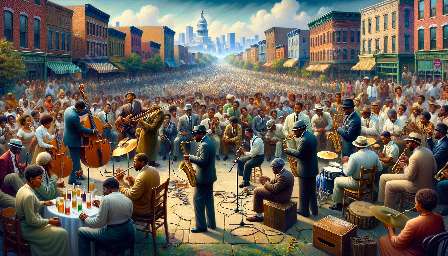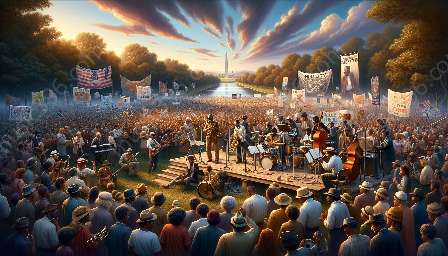Tracing the evolution of jazz and blues over the centuries reveals a rich tapestry of cultural and musical influences that have shaped these iconic genres. From their humble beginnings in the African-American communities of the southern United States to their global impact today, jazz and blues have captured the hearts of music lovers worldwide. This article explores the key events that contributed to the international popularity of jazz and blues, shedding light on their transformative journey and cultural significance.
The Origins of Jazz and Blues
Jazz and blues emerged in the late 19th and early 20th centuries, drawing on a fusion of African rhythms, European harmonies, and American folk music traditions. The deep-rooted history of African-American culture and the legacy of slavery played a pivotal role in shaping the soulful and expressive nature of these genres.
Blues, with its raw emotional power and poignant lyrical themes, reflected the struggles and joys of everyday life in the African-American community. Meanwhile, jazz, with its improvisational spirit and syncopated rhythms, became a platform for individual expression and collective creativity.
Key Events in the Popularization of Jazz and Blues
1. The Great Migration: The early 20th century witnessed a mass exodus of African-Americans from the rural South to urban centers in the North, bringing their music and cultural heritage with them. Cities like Chicago, New York, and New Orleans became thriving hubs for jazz and blues, providing fertile ground for the music to flourish and evolve.
2. Harlem Renaissance: The cultural movement of the 1920s and 1930s, known as the Harlem Renaissance, celebrated African-American art, literature, and music, elevating jazz and blues to new heights of recognition. The vibrant energy of Harlem's music scene and the emergence of legendary figures such as Louis Armstrong, Duke Ellington, and Bessie Smith propelled the genres into the national spotlight.
3. Recording Technology: The advent of recording technology in the early 20th century revolutionized the dissemination of music. Jazz and blues recordings reached audiences far beyond their live performance venues, captivating listeners across the country and around the world. The influence of record labels like Blue Note, Columbia, and Chess Records contributed to the widespread appeal of jazz and blues.
4. International Tours and Festivals: Jazz and blues artists embarked on international tours, sharing their music with audiences in Europe, Asia, and beyond. Festivals such as the Newport Jazz Festival and the Montreux Jazz Festival served as platforms for cross-cultural exchange, exposing global audiences to the infectious rhythms and soul-stirring melodies of jazz and blues.
5. Civil Rights Movement: The sociopolitical upheavals of the 1950s and 1960s provided a backdrop for the articulation of African-American identity and solidarity. Jazz and blues served as anthems of resilience and hope, resonating with diverse communities around the world and fostering a sense of unity in the face of adversity.
The Enduring Legacy of Jazz and Blues
Despite the ever-changing landscape of music, jazz and blues have maintained their relevance and allure. Their impact on popular music, from rock 'n' roll to hip-hop, attests to the enduring influence of these genres. Today, international jazz and blues festivals, educational programs, and cultural initiatives continue to celebrate the legacy of these timeless art forms, ensuring that their spirit lives on for generations to come.
In Conclusion
The international popularity of jazz and blues stems from a confluence of historical, cultural, and artistic currents that have shaped their evolution. From the crucible of African-American experiences to the stages of global concert halls, jazz and blues have transcended boundaries and resonated with diverse audiences. Their enduring legacy serves as a testament to the power of music to unite, inspire, and uplift the human spirit.






























